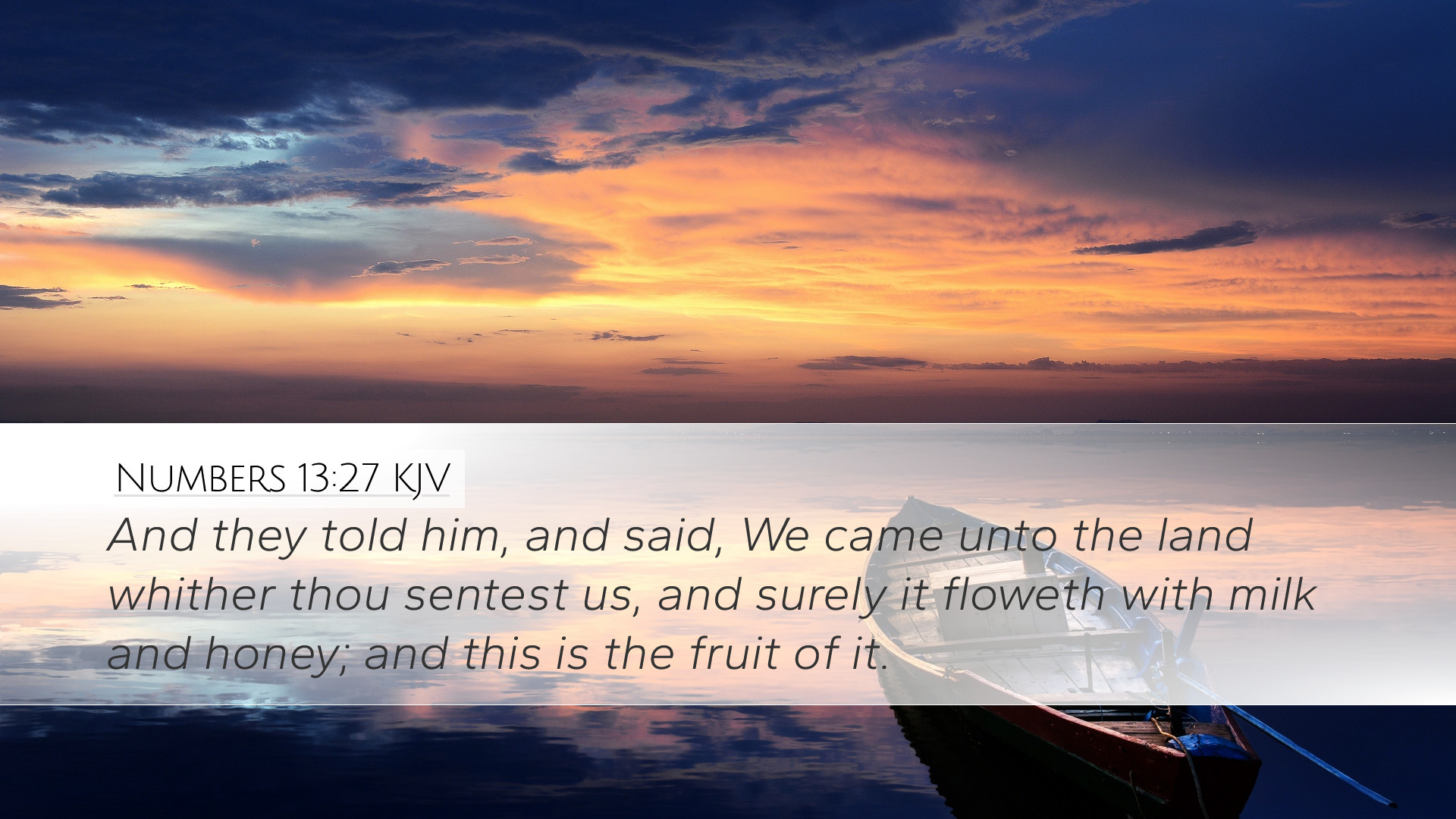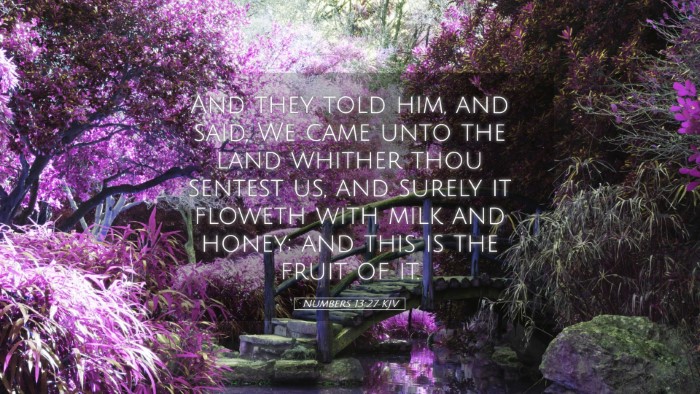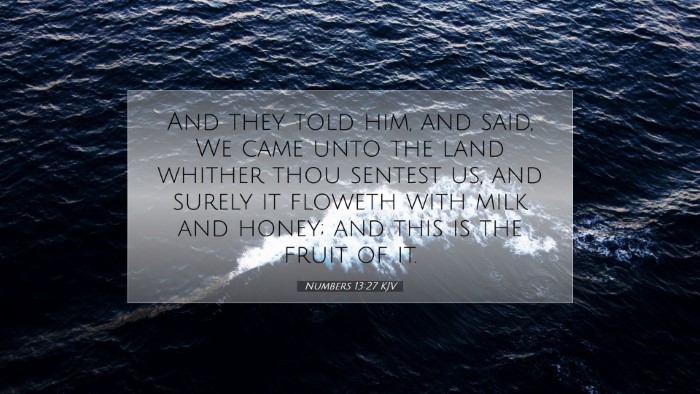Commentary on Numbers 13:27
Bible Verse: "And they told him, and said, We came unto the land whither thou sentest us, and surely it floweth with milk and honey; and this is the fruit of it."
Introduction
Numbers 13:27 serves as a pivotal verse in the narrative of the Israelite exploration of Canaan. The scouts' report is a contrast of faith versus doubt, promise versus peril, and obedience versus rebellion. Commentators have explored these themes extensively, providing valuable insights for pastors, students, theologians, and Bible scholars.
Contextual Background
The Israelites, following their exodus from Egypt, are on the verge of entering the Promised Land. This passage captures the moment when the twelve spies return with their report after scouting Canaan for forty days. Their account reflects both the abundant blessings of the land and the formidable challenges that lie ahead. This duality offers a wealth of meaning regarding faith, challenges, and divine promise.
Insights from Commentaries
1. Matthew Henry's Commentary
Matthew Henry emphasizes the promise of the land as a metaphorical representation of spiritual blessings. He notes that the phrase "floweth with milk and honey" signifies abundance, fertility, and divine favor. The fruit they bring back symbolizes the tangible blessings of following God’s direction.
Henry points out that the report is laden with irony; the spies affirm the goodness of the land while simultaneously inciting fear about the inhabitants. He elaborates on the internal conflict of the spies, highlighting how one can acknowledge God's goodness while still allowing doubt to enter their hearts.
2. Albert Barnes' Notes on the Bible
Albert Barnes provides a historical lens to the verse, analyzing the significance of the spies' return. He notes that the description of Canaan emphasizes both geographic and spiritual significance. The "milk and honey" are indicative of the land's lush resources, but they also serve as symbols of the divine blessings promised to Israel.
Barnes cautions against the temptation of a pessimistic outlook. Even in the face of daunting challenges, he suggests, one must focus on the Lord's promises. He urges believers to recognize that even when they encounter 'giants' in their lives, the fruitful rewards gleaned from faithfulness far outweigh these challenges.
3. Adam Clarke's Commentary
Adam Clarke offers a more detailed examination of the cultural and agricultural implications of the land flowing with milk and honey. He highlights how these elements were staples in the ancient Near East and represent prosperity and wellbeing.
Clarke underscores the dual nature of human assessments in matters of faith. While the land shows promise, the spies' mention of its inhabitants indicates the fear and doubt that can cloud faith. He cautions against letting the obstacles overshadow the goodness found in God’s promises, emphasizing reliance on God rather than fear of opposition.
Theological Implications
The report of the spies culminates in a theological tension that is profoundly applicable today. Here are several implications drawn from the various commentaries:
- Faith vs. Fear: The acknowledgment of the land’s goodness coexists with the fear of the inhabitants, demonstrating the struggle between faith and fear that believers frequently encounter.
- Divine Promises: The presence of "milk and honey" highlights the importance of recognizing and claiming God’s promises amidst challenges.
- Community Influence: The response of the community to the spies' report reveals how collective fear can divert a group from their divine calling.
Conclusion
Numbers 13:27 invites us into a deeper understanding of faith and divine promise. The commentators provide nuanced perspectives that encourage readers to confront their fears while fixating on God’s abundance. For pastors and theologians, this passage serves as a reminder of the abundant life promised in Christ, which transcends temporal challenges and instills hope and courage in the face of adversity.


